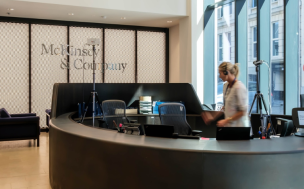The study, produced by management development network, EFMD, and higher education consultancy, CarringtonCrisp, is based on responses from more than 1,000 individuals from over 100 countries.
Over two-thirds (67%) of respondents indicated that they were considering a master’s program rather than an MBA; a hefty 19% increase from the last report in 2016. Individuals cited increased employability (31%) and earning potential (23%) as the top motivations for undertaking a master’s degree.
There was also significant growth (19%) in the number of respondents who perceived employers to consider master’s programs as valuable as an MBA. Adding substance to this belief, the University of Bath School of Management cites a 100% employment rate* for all its 2016 MSc in Management students within six months of graduating. (*Employment data based on those looking for work and for whom data is held (81% of 2016 class)
For students who want a niche specialization rather than a generalized approach, master’s degrees offer plenty of options to choose from. Hult International School of Business offers a master’s specialization in Disruptive Innovation, while Bath offers a uniquely inter-disciplinary degree in Engineering Business Management.
The UK’s Cranfield School of Management offers a host of specialized master’s degrees covering strategic marketing, corporate sustainability, and entrepreneurship to name a few. The Graduate Management Admission Council's (GMAC) report on application trends in 2017 shows that 74% of master’s programs in Data Analytics have reported application growth.
Indeed, the most popular specialist master’s, as noted by the CarringtonCrisp study, include Big Data Analytics, Finance, Management, Marketing, Accounting, International Business, Human Resources, and Economics.
Andrew Crisp, author of the "Tomorrow's Masters" study, notes that such a variety of specialisms will allow “individual institutions to carve out a focus” and will increase the “choices available to students.”
“We are seeing a pivotal shift in the market,” he continues. “There are more master’s programs being offered by business schools and students are turning to them in increasing numbers.
“Employers are seeking pre-experience master’s students, as they have additional learning compared to undergraduates and can be cheaper to recruit than MBAs.”
The cost of pursuing a master’s degree is significantly less than an MBA. Master’s business programs have also experienced an increase in international representation within their student cohorts. GMAC's report indicates that while 24% of global applications to MBA programs are from international candidates, the figure stands at over 80% for master’s degrees.
Candidates' characteristics also undoubtedly play an important role in their choice of program, with more recent graduates opting for pre-experience Master’s in Management degrees over MBAs.
Amongst the biggest national groups represented in the CarringtonCrisp study, Chinese students are the most likely to be considering a master’s degree at 74%. No coincidence then that the top-ranked Chinese University of Hong Kong (CUHK) has just launched its first Master in Management (MiM) program.
The MBA is not likely to be replaced. Out of the 67% of survey respondents who are considering studying a master’s over an MBA, 31% still plan to take an MBA in a few years’ time.
Still, with further diversification of graduate business programs, candidates have an increasing number of options available that may be more tailored to their needs.
RECAPTHA :
a7
51
43
42







